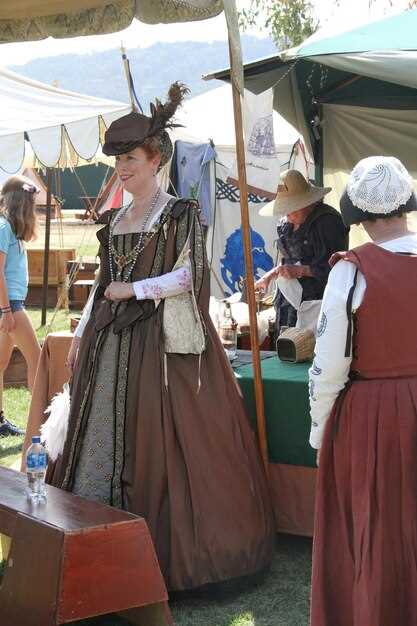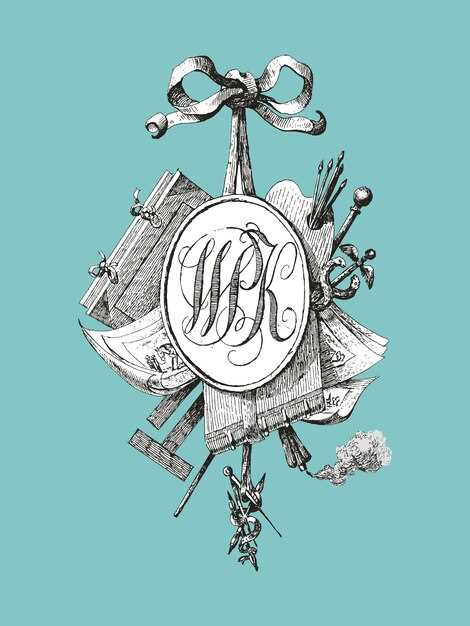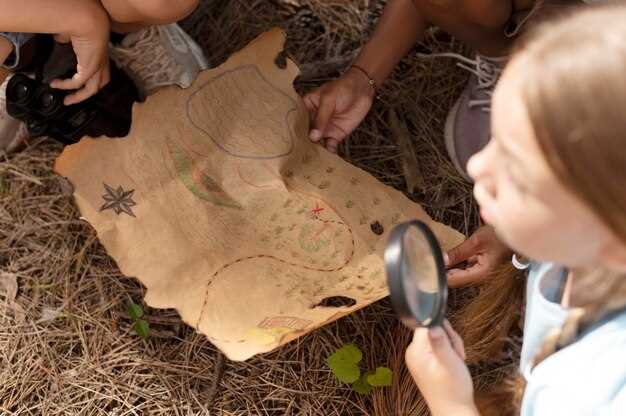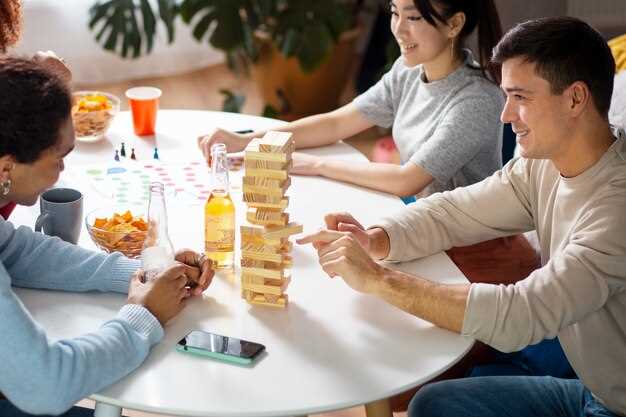Begin your search for historical reenactment festivals by checking local museums and historical societies. Often, these organizations host or have connections to events that showcase different time periods, such as the Civil War, the Renaissance, or medieval times. Engage personally with these community hubs, as they frequently provide a schedule of events that might include smaller gatherings or larger festivals nearby.
Don’t overlook social media groups and platforms dedicated to historical reenactment enthusiasts. By joining these online communities, you can access insider tips and discussions on upcoming events. These groups are often filled with passionate individuals who are eager to share locations, details, and even carpool options for reenactment festivals. This direct connection not only enhances your experience but can lead to discovering events you might have otherwise missed.
Explore local event listings and calendars on city or regional websites, which often advertise festivals that cater to history buffs. Many areas have dedicated months or weekends where entire neighborhoods transform into eras gone by, with vendors, performers, and reenactors making history come alive. With a little bit of research, you’ll soon find that your locale may be rich with opportunities to step back in time.
Discovering Local Historical Reenactment Events

Visit your local library or community center to find information on historical reenactment groups in your area. Many of these groups collaborate with local institutions to host events, and librarians or community leaders can provide insight or upcoming schedules.
Explore online platforms dedicated to history enthusiasts, such as Meetup or Facebook groups, where reenactors often share events and gatherings. These platforms allow you to connect directly with organizers and participants, offering an opportunity to engage with the community before attending an event.
- Check Local Museums: Many museums host reenactment events as part of their educational programs. These events can range from small-scale demonstrations to large festivals, often involving multiple reenactment groups and activities for visitors.
- Subscribe to Newsletters: Join mailing lists of historical societies or reenactment groups near you. They often send newsletters with detailed information about upcoming events and exclusive opportunities for members.
- Join Local Historical Societies: Becoming a member of a historical society can provide firsthand updates about reenactment events and offer networking opportunities with passionate individuals who share your interest in history.
Attend local fairs and festivals, which often feature historical reenactment as part of their programming. These events provide a vibrant atmosphere where you can witness live demonstrations and interact with reenactors, gaining a deeper understanding of living history.
Encourage family and friends to join you in these explorative adventures, as attending events with a group can enrich the experience and make interactions more meaningful. Engaging with historical reenactments allows you to travel back in time and appreciate the cultural tapestry of your region through dynamic, live history presentations.
Utilizing Online Resources for Event Searches
Start your search by exploring event-focused websites like Eventbrite and Meetup, where you can filter results by location and category to find historical reenactments near you. Bookmark these sites for quick access and regular updates.
Check local community forums and Facebook groups dedicated to historical societies, as members often share information about upcoming gatherings and festivals. Engage with these communities to gain insider tips and stay informed about niche events that may not be widely advertised.
Don’t forget to explore websites of local museums and historical societies. They frequently host or sponsor reenactment events and provide detailed schedules on their websites. Subscribing to newsletters from these organizations can also keep you posted on forthcoming events.
For a broader search, try Google Trends and set up Google Alerts with keywords related to historical reenactments in your area. This way, you can receive notifications and updates directly in your inbox without having to conduct manual searches regularly.
Online event calendars on city or county websites can be a treasure trove of information. These calendars often list diverse cultural events, including historical reenactments, serving as a dependable source for finding local gatherings.
Connecting with Regional Historical Societies
Join your local historical society to gain insights and detailed knowledge about upcoming reenactments. These societies often organize events throughout the year, providing valuable perspectives into the region’s past. Start by checking their websites or social media pages for event calendars and membership information.
Attend Meetings and Events: Regularly attending meetings or events hosted by the society can greatly enhance your connection with fellow history enthusiasts. These gatherings are excellent opportunities to exchange ideas, discover resources, and learn from experienced reenactors.
Volunteer: Volunteering at historical society events can also be an enriching experience. Societies often seek help with setting up festivals, guiding visitors, or even participating in reenactments. This involvement offers a hands-on approach to history and fosters deeper connection with your community.
Leverage Membership Benefits: Many historical societies offer exclusive benefits to their members, such as access to private archives, discounts on event tickets, or special workshops. These resources can be pivotal in enhancing your understanding and appreciation of historical reenactments.
Finally, utilize these societies as a networking platform. Engaging with like-minded individuals can open doors to collaborative projects and provide support for personal reenactment endeavors. Stay active and maintain regular communication to make the most out of your interactions.
Exploring Local Museums and Heritage Sites for Event Listings
Begin your search by visiting the websites of local museums and heritage sites. These institutions often host or are aware of upcoming historical reenactments and gatherings. Check their event calendars and sign up for newsletters to receive timely updates on exhibitions and happenings.
Pay a visit to the local historical society or chamber of commerce. They can provide information about smaller, community-driven events that might not be widely advertised. They also have connections with reenactment groups and can point you in the right direction.
Leverage social media platforms. Many museums and heritage sites maintain active profiles where they announce events and seasonal festivals. Follow them to keep a finger on the pulse of local historical activities.
Engage with staff during museum visits. The personnel often have insider knowledge about upcoming events. Don’t hesitate to ask for recommendations or additional contacts who might be involved in the reenactment community.
Join local history groups or forums online. Group members frequently share event details and can offer firsthand insights about what to expect at specific festivals. This community can become a valuable resource for continuous engagement with historical reenactments throughout the year.
Engaging with Social Media Groups and Pages
Join local historical reenactment groups on platforms like Facebook and Reddit to connect with enthusiasts in your area. These online communities often share valuable insights about upcoming events, tips for period-appropriate costumes, and even offer mentorship for newcomers stepping into this fascinating hobby.
- Facebook Groups: Search for local reenactment groups by specific eras, such as “American Civil War Reenactment” plus your city or region. Participate actively by asking questions, sharing your own experiences, and connecting with fellow members.
- Reddit Communities: Subreddits like r/Reenactors and r/LivingHistory are treasure troves of information. Engage in discussions, post about your own projects, and learn from seasoned reenactors who frequently contribute their knowledge.
- Event Pages: Follow event pages and official festival accounts to receive notifications about date changes, ticket releases, or special guests. Often these pages offer behind-the-scenes content that adds depth to your festival experience.
- Instagram Hashtags: Use hashtags related to reenactments, such as #HistoricalReenactment and #LivingHistory, to discover photo diaries and stories from events worldwide. Connecting through visual content adds a personal touch to online interactions.
Regular interaction in these digital spaces enhances your participation in the reenactment community, providing valuable connections and insights to enrich your experience. Stay active, stay curious, and enjoy the vibrant community that keeps history alive.
Joining a Historical Reenactment Society in Your Area

Research local historical reenactment societies through community centers, libraries, or online platforms dedicated to history enthusiasts. Contact these groups directly to learn about membership requirements, upcoming meetings, and events. Engaging in social media groups or online forums can also connect you with fellow reenactors and offer insights into the local scene.
Attend a meeting or a small event hosted by a nearby society to immerse yourself in the activities and meet current members. Don’t hesitate to ask questions about the nuances of participation, from costume creation to understanding historical contexts. This firsthand experience is invaluable for gauging your interest and commitment level.
Many societies appreciate volunteers, especially those willing to assist with organizing events or managing logistics. Volunteering can provide practical experience and help build relationships within the community. It’s a proactive approach that often enriches the overall reenactment experience.
Consider specialized interests within reenactment, like focusing on a particular era or role that captivates you. Many societies have subgroups dedicated to specific historical periods, allowing you to delve deeper into an area you’re passionate about. Participating in these focused groups can enhance your knowledge and enjoyment.
Ensure you stay updated with the society’s event calendar and communication channels. Regular involvement not only enriches your understanding but also integrates you into the reenactment community. Over time, your active participation can lead to new friendships and opportunities in the world of historical reenactment.
Understanding Membership Requirements and Benefits
Begin by looking into the specific requirements for joining local reenactment groups, as this can vary. Most festivals or groups request that members participate in a certain number of events each year. Additionally, you may need to invest in authentic costumes and equipment, which some groups offer guidance on.
Membership often comes with significant perks. Members frequently enjoy access to exclusive events or gatherings not open to the general public, providing deeper immersion into the historical periods they are passionate about. Many groups offer educational workshops, where skills like traditional crafts or historical combat techniques are taught.
Networking is another valuable benefit. Joining a group connects you with like-minded enthusiasts with whom you can share tips and resources to enhance your reenactment experiences. Often, members receive discounts on event tickets and can rent costumes and equipment from the group’s inventory at lower rates.
Financial obligations, such as dues, are typically expected; however, these are usually reinvested into the group, enhancing events, upgrading shared equipment, and funding workshops. Evaluate what each group offers in terms of camaraderie, learning opportunities, and event participation to choose the one that best aligns with your interests.
Participating in Workshops and Training Sessions
Explore local historical reenactment groups by checking their social media pages or websites for information about upcoming workshops and training sessions. Becoming a member of a group can provide you access to exclusive training opportunities tailored to specific eras or skills. Whether you’re interested in medieval swordplay or learning period dance, these sessions offer practical experience.
Engage with local museums or community centers that frequently host historical craft classes. These classes often cover topics ranging from traditional blacksmithing to period cooking techniques. Register in advance as spaces can be limited, and classes fill up quickly due to high demand.
Network with other enthusiasts at festivals to discover informal training gatherings and skill-sharing meetups. Many hobbyists enjoy sharing their expertise in a friendly, collaborative environment. Be proactive in exchanging contact information and follow up with potential training partners for future sessions.
Attend workshops led by experienced reenactors to enhance your skills and knowledge. These sessions often feature hands-on activities, giving you the chance to practice newly learned techniques under expert guidance. Don’t hesitate to ask questions–trainers are usually eager to share their passion and help you improve.
Always prioritize safety by wearing appropriate protective gear during physical activities, and ensure that instructors are certified or recognized by reputable historical reenactment organizations. This approach not only improves your experience but also ensures a safer environment for everyone involved.
Networking Opportunities within the Reenactment Community
Participating in local reenactments offers a wonderful chance to build connections with fellow enthusiasts. Start by engaging in online forums dedicated to your preferred historical period. These platforms often host discussions about upcoming events, as well as offer a space for enthusiasts to share experiences and advice. Consider joining social media groups focused on historical reenactment. Through these groups, you can meet other reenactors, learn about less-publicized events, and even collaborate on projects.
Another excellent networking tip involves attending workshops and seminars organized by reenactment groups. Sessions often cover topics such as costume making, historical cooking, or period-specific combat. Not only do these workshops enhance your skills, but they also provide the perfect environment to meet like-minded individuals who share your passion.
Volunteering during events allows you to interact closely with event organizers and participants. Check with local historical societies or reenactment clubs for volunteer opportunities. This involvement exposes you to a broader network within the community, leading to potential invitations to private gatherings or exclusive activities.
Consider joining a reenactment club or association. These organizations frequently offer members access to exclusive events, training sessions, and resources. Membership can also lead to lifelong friendships with people who share your enthusiasm for preserving history.
| Platform | Benefits |
|---|---|
| Online Forums | Connect with enthusiasts, share experiences, find events |
| Social Media Groups | Network with enthusiasts, discover less-known events |
| Workshops/Seminars | Improve skills, meet like-minded individuals |
| Volunteer Opportunities | Engage with organizers, expand your network |
| Reenactment Clubs | Access to exclusive events, lifelong connections |
Accessing Historical Resources and Costuming Guidance
Explore local libraries and museums for books, catalogs, and exhibitions that focus on the era you’re interested in reenacting. Libraries often have civilian letters, military records, and personal diaries that provide insight into daily life and clothing styles.
Join reenactment groups or historical societies that frequently exchange tips on sourcing authentic materials and patterns. This community support can lead you to local artisans who specialize in creating or tailoring period attire.
Use online forums and social media groups dedicated to historical reenactments. These platforms can connect you with international resources, offer step-by-step tutorials for crafting garments, and share detailed patterns based on historical findings.
Consider attending workshops led by experienced reenactors. These sessions often include discussions on fabric types, sewing techniques, and accessory creation, ensuring your costume accurately represents the targeted period.
Local ethical fabric stores are invaluable for sourcing natural fibers like wool, linen, and cotton. Consult with store owners who can advise on the best matches for historical clothing.
Reach out to historical garment consultants who might offer personalized advice and supervision during your project. Many of these experts rent themselves out for one-on-one sessions to guide enthusiasts through intricate costume creation, ensuring authenticity.
Finally, explore digital archives from universities and historical institutions. Many of these archives offer access to sketches, paintings, and manuscripts that detail clothing styles from various periods, providing visual accuracy for your costume endeavors.
Q&A:
What are the best ways to discover historical reenactments happening near me?
One of the most effective ways to find local historical reenactments is to start by checking community event calendars and websites dedicated to local events. These often list upcoming festivals and gatherings in your area. Social media groups focused on historical reenactment are also great for discovering events, as members frequently share information about upcoming activities and locations. Additionally, visiting local museums or historical societies can provide insights into nearby gatherings and sometimes they sponsor or host their own events.
Are there any specific online resources or websites dedicated to historical reenactments?
Yes, there are several online platforms where you can find information about historical reenactments. Websites like Eventbrite and Meetup can have listings for reenactment events. Additionally, there are niche sites dedicated to historical reenactments, such as Reenactor.Net, which provides a directory of reenactments across various historical periods. Exploring these can give you a detailed look at what’s happening both locally and nationally.
What should I expect when attending a historical reenactment for the first time?
When attending a historical reenactment for the first time, anticipate an engaging and educational experience. You’ll likely encounter participants in period-accurate costumes performing various activities from the era they’re depicting. Events often include battle reenactments, demonstrations of historical crafts, and opportunities to learn about the daily life of the past. It’s a family-friendly atmosphere where you can actively participate or simply observe and enjoy the immersive experience.
How can I get involved in participating in a local historical reenactment?
Getting involved in historical reenactment is a rewarding endeavor. Begin by reaching out to local reenactment groups or societies, which you can find through social media or community boards. Many groups are welcoming to newcomers and provide guidance on acquiring or creating period-appropriate attire and learning the history behind the role you’ll play. Attending meetings or workshops can help you get acquainted with the community and get started on your reenacting journey.
Are historical reenactments suitable for children, and do they usually have activities designed for younger audiences?
Historical reenactments can be quite suitable for children, offering an engaging way to learn about history. Many events feature activities specifically designed for younger audiences, such as interactive storytelling sessions, educational games, and hands-on crafts related to the historical period being portrayed. Always check the event’s agenda or contact organizers beforehand to confirm available activities and ensure the event’s suitability for your children.
How can I find local historical reenactment events happening near me?
To locate historical reenactment events in your area, you can start by searching online event platforms such as Eventbrite or Meetup, where many organizers list upcoming festivals and gatherings. Local history museums and historical societies are also excellent resources, as they often host or are affiliated with reenactment groups and events. Additionally, social media platforms have numerous groups dedicated to historical reenactment fans who frequently share information about nearby events. Checking community bulletin boards or local newspaper event listings can also provide insights into upcoming historical reenactments. Be sure to visit the websites or contact the organizers to confirm the details and make any necessary arrangements before attending.




